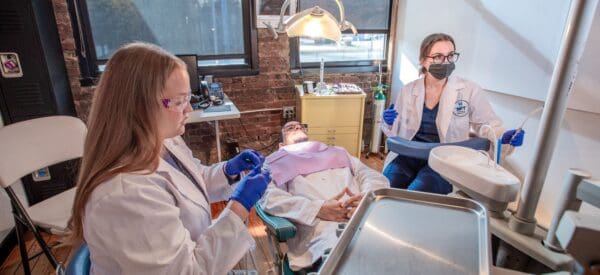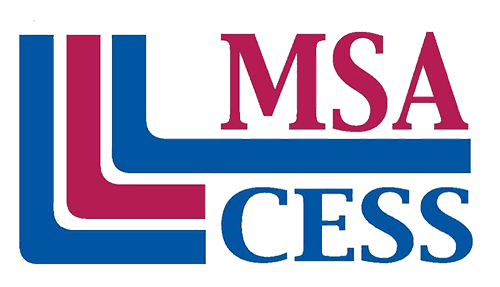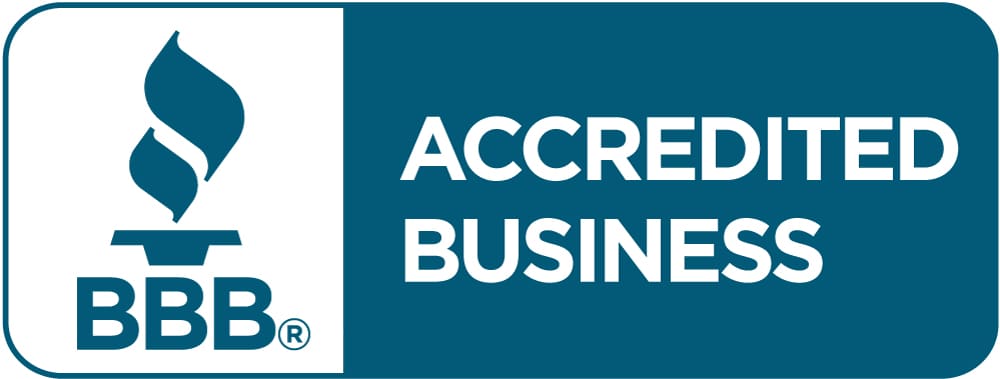Patient safety is a top priority for the whole dental team, especially when it comes to infection control. Dental Assistants play an important part in this effort. According to the DANB, over 80% of Dental Assistants are responsible for infection control in their workplace. Learn more about how they help stop the spread of infections.
The Importance of Infection Control In A Dental Practice
Infection control is crucial in a dental practice because it helps protect both patients and staff from the spread of harmful bacteria, viruses, and diseases. Dental procedures often involve contact with blood, saliva, and other body fluids, which can carry infections. By following strict infection control protocols, dental practices reduce the risk of cross-contamination, ensure a safe and hygienic environment, and maintain high standards of patient care. This not only promotes overall health but also helps build trust between the dental team and their patients.
How Dental Assistants Stop Infection
Dental Assistants play a key role in infection control by following specific procedures to maintain a clean and safe environment. Here are some common practices:
- Sterilizing Instruments: They clean, disinfect, and sterilize dental tools and equipment after each use to prevent the spread of germs.
- Maintaining Clean Surfaces: Dental Assistants disinfect work surfaces, chairs, and other areas where patients receive care.
- Personal Protective Equipment (PPE): They wear gloves, masks, eyewear, and gowns to protect themselves and patients from exposure to infections.
- Hand Hygiene: Regular hand washing and using hand sanitizer before and after each patient is essential to stop the spread of bacteria and viruses.
- Handling Waste Properly: They dispose of contaminated items, such as used gloves or gauze, according to health regulations to minimize the risk of infection.
By following these infection control practices, Dental Assistants help create a safe environment for everyone in the dental office.
How To Become An Infection Control Point Person
A Dental Assistant can become an infection control point person in their workplace, which can enhance their role and career prospects in the dental field. Here’s how to pursue this path:
- Get Certified: Prospective Dental Assistants should seek out courses and certifications that will give them the proper training in infection control. For example, Dental Assisting National Board (DANB) certification is highly regarded in the industry. An accredited Dental Assistant certification course like the one we offer at ACI Medical & Dental School will equip you with knowledge about sterilization techniques, disease transmission prevention, and safety regulations.
- Stay Updated on Guidelines: Infection control guidelines frequently change, especially during health crises like the COVID-19 pandemic. Staying informed about the latest Centers for Disease Control (CDC), Occupational Safety and Health Administration (OSHA), and American Dental Association (ADA) recommendations will make you an asset in the practice, as you’ll ensure the clinic follows current best practices.
- Take Initiative in the Workplace: Begin by demonstrating a strong interest in infection control within your current role. Help to monitor sterilization processes, keep track of supplies, and ensure that all team members follow hygiene protocols. By showing leadership in this area, you can naturally step into the role of infection control point person.
- Communicate and Train Others: Infection control requires consistent team-wide effort. As the point person, you’ll be responsible for training other staff on the importance of infection prevention, ensuring compliance with procedures, and auditing infection control measures.
- Advocate for Workplace Safety: Beyond day-to-day responsibilities, you can make a lasting impact by advocating for improved safety measures and updated equipment to support infection control efforts. This can position you as a leader in patient safety, which is highly valued in healthcare settings.
- Career Advancement: By specializing in infection control, you increase your value in the dental field. This expertise can lead to opportunities such as higher-level administrative roles, teaching positions, or becoming a compliance officer, all of which come with the potential for better compensation and job security.
Want to learn more about becoming a DANB-certified Dental Assistant with Radiology? Contact ACI Medical & Dental School today to learn more about our accelerated program!








